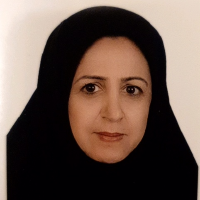The Relationship between Intelligence Beliefs and Cognitive Flexibility and Academic Performance : A Study of the Mediating Role of Perceived Social Support and Self-Perception in Students
The aim of the present study was to investigate the role of mediating social support, perception, and self-perception in relation to beliefs, intelligence, and cognitive flexibility with academic performance. The research method was descriptive-correlation in the form of structural equation modeling. The statistical population was all male and female students in the ninth grade of the first year of high school in Tehran in the academic year of 1997-98. 450 students were selected as a sample using multi-stage cluster random sampling method. The research instruments included the Dortaj (2004) Academic Performance Questionnaire, Abdel Fattah Hawitz (ITIS), Cognitive Flexibility (CFI), Deniso & Wonderwell (2010), Perceived Social Support (MSPSS), Zimento et al. Research data were analyzed using structural equation modeling. The findings indicated that perceived support did not play a mediating role in the relationship between intelligence variables and academic performance. Also, the relationship between intelligence beliefs and academic performance with the mediating role of self-perception showed that the indirect effect is not significant. Another finding on the mediating role of support and perception in the relationship between cognitive flexibility and performance showed that the relationship between variables has an indirect and significant effect, but self-perception is not able to play a mediating role in the relationship between cognitive flexibility and performance. It can be concluded that in this age group (ninth grade), cognitive flexibility directly and indirectly affects academic performance through perceived social support. The research findings are useful for education policy makers.
-
The Effectiveness of Intensive Short-Term DynamicPsychotherapy (ISTDP) on Defense styles and Rumination ofMothers with Mentally Disabled Child
Mandana Niknam*, Zahra Sadat Johari,
Journal of Exceptional Education, -
Investigating the mediating role of marital satisfaction in the relationship between early maladaptive schemas and marital commitment
Nazhin Rabiee, *, Roya Koochakentezar, Shirin Kooshki
Rooyesh-e-Ravanshenasi,



